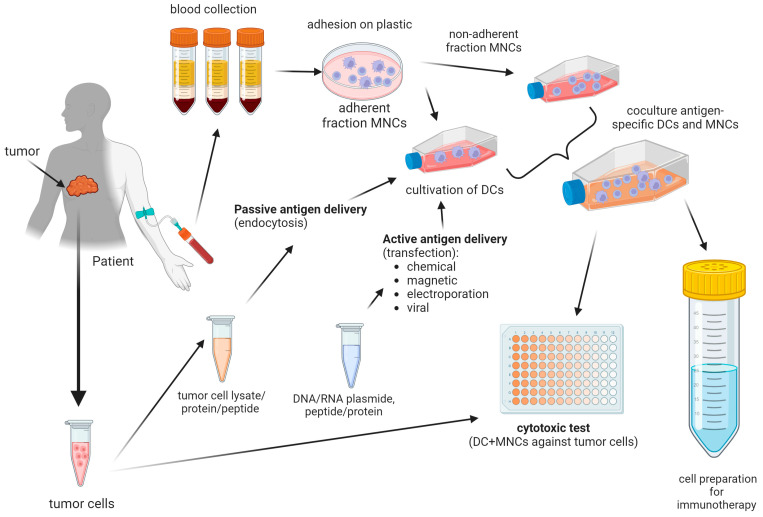Figure 2.
Schematic diagram of obtaining a cell preparation based on various forms and methods of delivering tumor antigens to dendritic cells. The production of modern cell preparations from dendritic cells is based on obtaining dendritic cells from patient peripheral blood monocytes under in vitro conditions. Various forms of delivery of tumor antigens are used: lysates of autologous tumor cells and isolated tumor-associated peptides/proteins or synthesized DNA or RNA constructs and peptides/proteins. These tumor antigens are delivered to dendritic cells passively, through natural endocytosis at the immature dendritic cell stage, or actively, through magnetic, chemical (lipofection), viral (transduction), transfection or electroporation methods. Currently, the greatest effectiveness in inducing an antitumor immune response is observed when co-cultivating in vitro obtained antigen-specific dendritic cells with lymphocytes (non-adhesive MNC fractions) to induce cytotoxic T-lymphocytes, including antigen-specific ones. The effectiveness of the resulting cell preparation is assessed in an in vitro cytotoxicity test against autologous tumor cells, if any, or cells of a tumor line expressing the target tumor-associated antigen [115,116,117].

